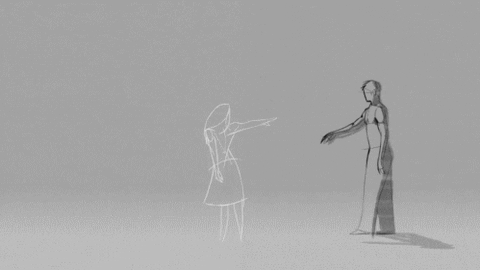Self-awareness is knowing how I feel and what I want.
|

|
Here's a great article on understanding and developing self-awareness:
Verywell Mind: What Is Self-Awareness? Development, Types, and How to Improve It
If I can name my feelings as they're happening and my desired experiences (a skill inherent in emotional intelligence), my prefrontal cortex — the part of the brain that integrates self-regulation, strategic thinking, decision-making, and language centers with felt-sense awareness — is engaged in my perception. My awareness is more integrated and embodied. My choices are better informed, less impulsive.
"The prefrontal cortex (PFC) intelligently regulates our thoughts, actions and emotions through extensive connections with other brain regions." —NIH
Some wisdom traditions describe two fundamental states of awareness -- fear (resistance to what-is) and love (unqualified acceptance of what-is).
It is profoundly empowering to know where my attention and intention are focused and how I'm feeling — what motives me from moment to moment. How much by resistance? How much by acceptance? These questions offer a useful perspective for gaining self-awareness.
With an ability to speak about my inner experience, I can stand outside an impulsive identification with my limbic brain's physical-emotional reaction to the discomfort of my situation. (See Feel ... and Listen for more on this.)
With self-awareness and the courage to name my sensations and emotions (how I feel) and my desired experiences (what I want) in a specific situation, I can invite you into my inner experience in a way that resonates with values we have in common as human beings. I'm less likely to get lost in "my story" about the drama of our conflicting strategies.
Consider these two fundamentally different states of felt-sense perception.
Fear
|
Love
|
I alone have responsibility for how I focus my attention.
I always have a choice, regardless of my conditioning. Herein lies my power to manifest the experiences I want — constrained, of course, by how I'm directing my attention with love or fear at any given moment.
My past conditioning (socialization) influences my feelings and choices. Those thoughts, beliefs, and impulses control me only to the extent I give them power to do so.
A true story about a scripted conversation that changed everything




